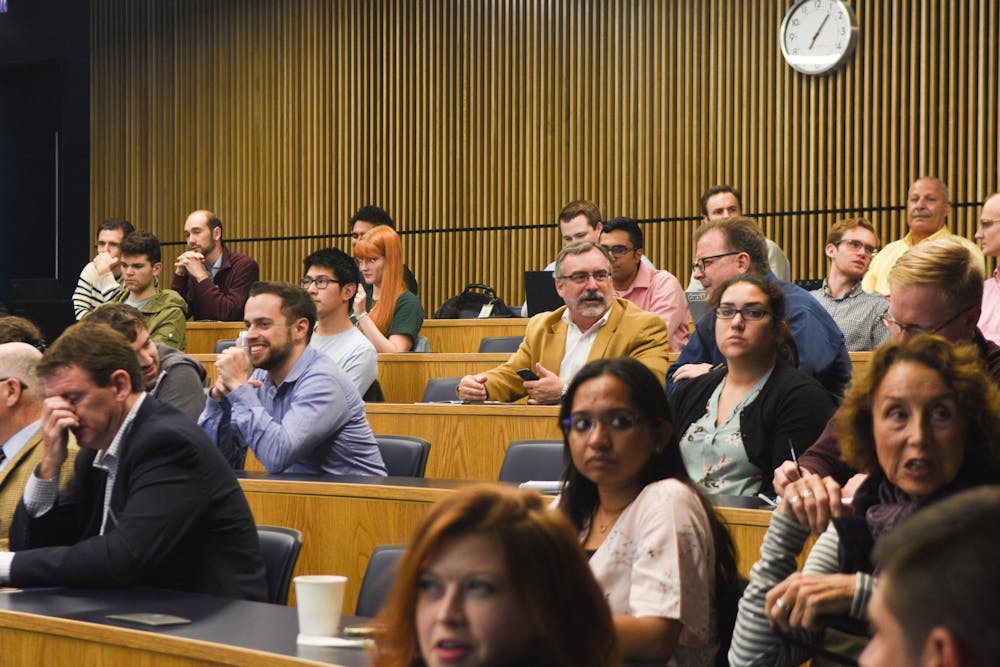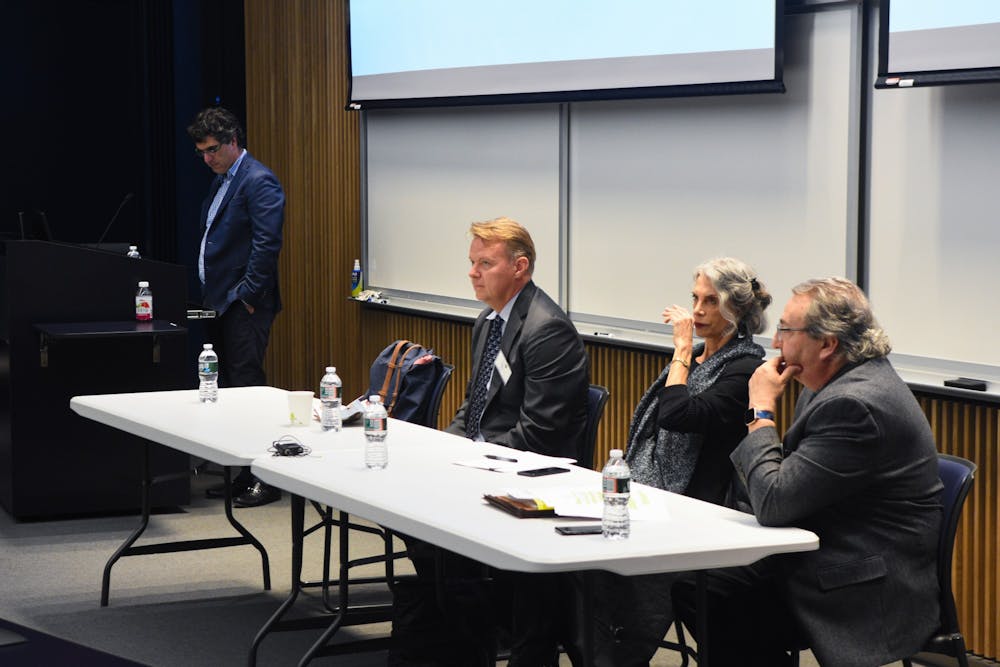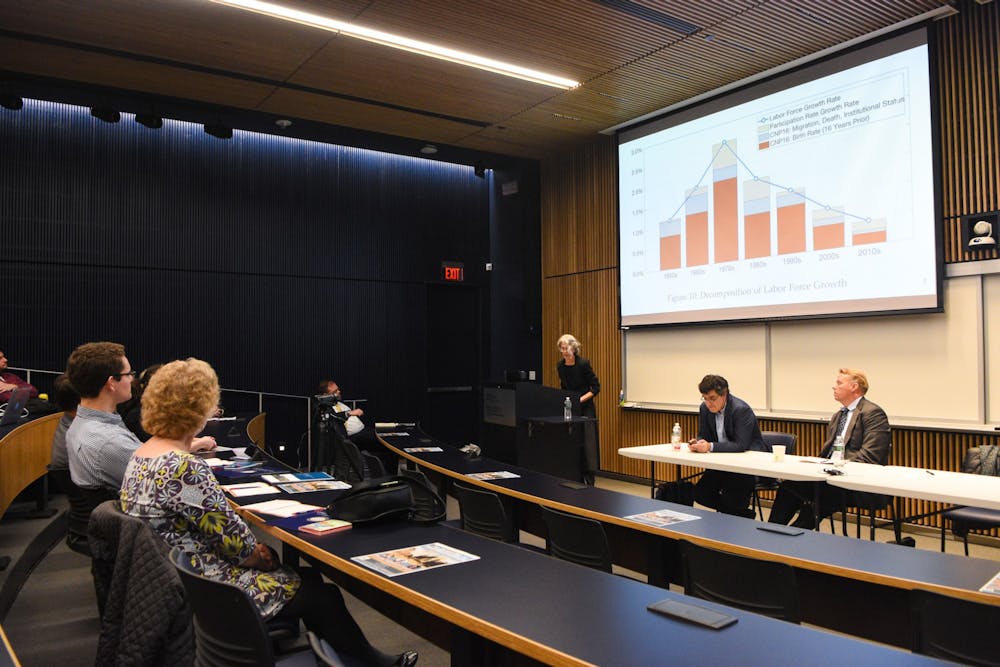
Penn’s Collegium Institute kicked off a conference on the philosophy of finance Tuesday night with a panel discussion on the future of economic and political systems.
The panel, entitled "The Common Good and the Future of Capitalism," featured three professors: Penn Economics professor Jesús Fernández-Villaverde, New York University Multilingual Multicultural Studies professor Marcia Pally, and University of California, Davis Philosophy professor Mark Reiff. The professors provided a diverse range of responses on how to deal with political, philosophical, and economic issues both in the United States and around the world.
The event was hosted by the Collegium Institute for Catholic Thought and Culture, a scholarly nonprofit focused on "the Catholic intellectual tradition, and the liberal tradition of humane studies” according to its website. Michael Kane, director of Collegium’s Philosophy of Finance program, said the panel is the start of a two-day conference which is the “first–ever” nationally to focus explicitly on the philosophy of finance. The conference comes after the Collegium Institute began a fellowship program on the philosophy of finance last year.
Kane said when organizing the event, one priority was ensuring there were speakers from a diverse range of fields.
“The conference is an attempt to broaden the conversation beyond students at Penn,” he said. “My goal in the programming is to give a better definition of what the philosophy of finance field is.”

Following opening remarks from Kane and his fellow organizer, Collegium Institute Associate Director John Buchmann, the panelists presented a range of approaches to looking at contemporary issues.
Fernández-Villaverde described how a drop in fertility rates, a skills bias in the workplace, and marriages between those of similar educational backgrounds have led to global economic shifts. He said these factors could lead to increased economic disparity between the richest and most educated and the rest of society.
Reiff also focused on increasing inequality, but he made his argument using the political theory of liberal capitalism rather than economics.
“My perspective is not that we need to be worried about the economic system but the political system instead,” Reiff said. “What we currently have is a perfect storm with the mind-blowing inequality between the super–rich and everyone else.”
Reiff added that the United States is in “very deep trouble” and that if current political trends continue, the country will move towards fascism. Because of this, political revision is needed.

In a shift from the first two speakers, Pally based her speech on theology and the history of physical sciences. She said history provides hope that reforming society for the better is "not impossible."
“The upside is that the 200,000 years of experience with hunter–gatherer cooperativity remains with us as a resource from which we can construct a less aggressive and impoverished society than today,” Pally said.
Afterward, Kane opened the panel up to the audience for questions before concluding the conference’s opening event.
The conference will continue tomorrow with a number of breakout sessions and lectures focusing on philosophical thought, economic change, and interdisciplinary research between fields.
“My hope is that students and attendees will walk away with more questions, questions they can’t answer in two hours, questions they can’t even answer in two days,” Buchmann said. “At the end of the day, this area study needs to exist, much more than it does right now.”
The Daily Pennsylvanian is an independent, student-run newspaper. Please consider making a donation to support the coverage that shapes the University. Your generosity ensures a future of strong journalism at Penn.
Donate







